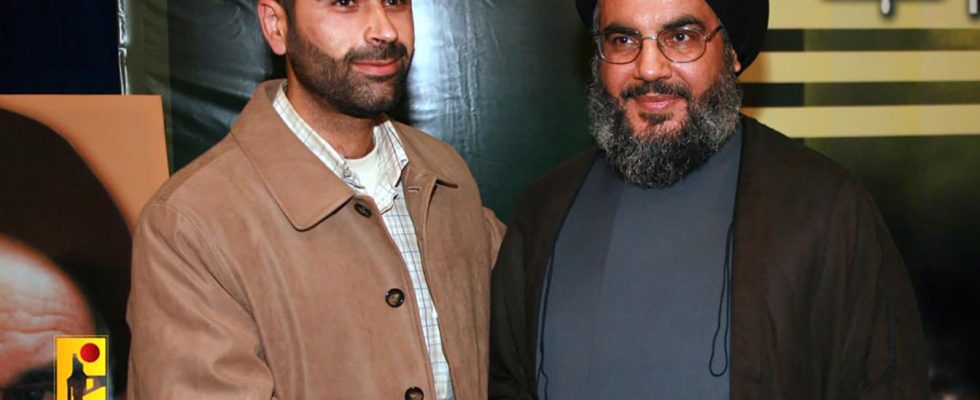unsaveSave
share-arrowShare
expand-left
full screen Wissam Tawil (left) with Hezbollah leader Hassan Nasrallah. Time and origin of the photo is unknown. Archive image. Photo: Unknown origin Via AP/TT
The militant Hezbollah movement in Lebanon must avenge the death of commander Wissam Hassan Tawil in an attack.
– What you are worried about in Israel is that Hezbollah deploys more of its sophisticated rockets and robots which can threaten the inner parts of Israel, says lieutenant colonel Anders Ekholm.
Tawil was a high-ranking commander of Hezbollah’s armed wing Radwan, and is believed to have had close ties to Iran. The attack that killed him in southern Lebanon could mean further escalation of the conflict in the Middle East, according to Anders Ekholm at the Swedish Defense Academy in Stockholm.
– The gap between the loud threats that are expressed and what is shown in action will otherwise be too large and all credibility will disappear.
Impossible not to answer
He mentions the deadly attacks on Iranian Brigadier General Razi Mousavi in Syria on Christmas Day and terrorist-labeled Hamas senior leader Saleh al-Arouri in Beirut on January 2.
– These aspects taken together probably make it very difficult, if not impossible for Hezbollah not to respond, Ekholm continues.
Hezbollah has access to sophisticated rockets and robots. But to be effective in retaliation, the Islamist movement must “target the Israeli air defenses”; in such a case, many robots must be fired at the same time in order for some, at least statistically, to be able to penetrate the protection of the Israeli air defense, called the Iron Dome.
However, Ekholm doubts that Iran would openly enter the conflict:
– Tehran knows that it will cost a lot – not only from the Israeli side but most likely from the American side.
Long list
The United States has previously flagged placing aircraft carriers near Iran, and reports suggest the aircraft carrier USS Dwight Eisenhower is in the Red Sea en route to the region.
But Ekholm also points out that the attacks are part of a larger context from an Israeli perspective, even if the country has not taken responsibility for the acts in question.
Israeli intelligence is believed to have a long list of designated individuals it wants to eliminate in the ongoing campaign. It is sometimes called mabam in Hebrew, “the war between the wars”, which is carried out above all in Syria with the aim of preventing the growth of Hezbollah with the help and resources of Iran.
– It could be that Israel saw an opportunity and took it. You wait in when the opportunity presents itself. It could also be that Israel has had control of commander Tawil in the past, but that they then let him be as Hezbollah held back, says Anders Ekholm.
